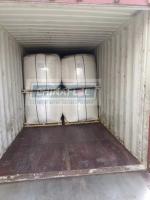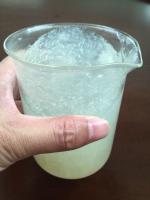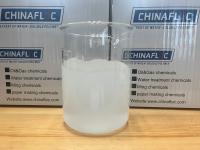leading sap manufacturer|super absorbent polymer producer}china sap plants
Superabsorbent polymers (SAPs) are a class of synthetic materials known for their remarkable ability to absorb and retain large amounts of liquid relative to their own weight. These polymers can absorb several times their weight in water or aqueous solutions and swell to many times their original size. Due to this unique property, SAPs are used in various applications across numerous industries, from personal care to environmental management. Below, we explore the primary applications of SAPs, highlighting their roles in different sectors, including hygiene products, agriculture, wastewater treatment, food packaging, and medical uses.
1. Hygiene and Personal Care Products
One of the largest and most well-known applications of SAPs is in hygiene and personal care products. Their ability to quickly absorb moisture and lock it away makes them essential components in items such as diapers, sanitary napkins, and adult incontinence products.
-
Baby Diapers: SAPs are used in the absorbent core of baby diapers, where they absorb urine and convert it into a gel. This prevents leakage and helps keep the baby's skin dry, reducing the risk of irritation and rashes. SAPs can absorb multiple times their weight in liquid, which makes them highly effective for maintaining dryness in diapers.
-
Adult Incontinence Products: SAPs are also critical in adult incontinence products, including pads, briefs, and pull-ups. These products are designed to manage urine leakage in adults, particularly in elderly individuals or those with medical conditions. The use of SAPs in these products ensures that moisture is absorbed quickly and locked away, keeping the wearer dry and comfortable.
-
Sanitary Napkins and Feminine Hygiene Products: SAPs are commonly used in sanitary napkins, tampons, and panty liners to absorb menstrual fluids. These products rely on the high absorbency of SAPs to keep the wearer dry and comfortable during menstruation, preventing leaks and maintaining hygiene. SAPs in feminine hygiene products help to maintain a dry surface, which is crucial for preventing odor and irritation.
-
Incontinence Pads and Post-Surgery Pads: SAPs are also used in pads designed for post-surgery recovery and incontinence. These pads are used to absorb bodily fluids, including blood and exudates from wounds. By absorbing moisture and maintaining a dry environment, SAPs help reduce the risk of skin irritation and infection, promoting better healing.
2. Agriculture and Horticulture
SAPs have significant applications in agriculture and horticulture, primarily for improving water retention in soil, conserving water, and supporting plant growth. These polymers are especially beneficial in regions where water scarcity is a concern.
-
Soil Moisture Retention: In agriculture, SAPs are used to improve the water-holding capacity of the soil. SAPs can absorb large amounts of water and slowly release it over time, which helps maintain consistent moisture levels in the soil. This reduces the need for frequent irrigation, making it particularly valuable in dry or drought-prone areas. By retaining water in the soil, SAPs reduce evaporation and water waste, supporting sustainable farming practices.
-
Hydroponics and Container Gardening: In hydroponics (soil-free farming) and container gardening, SAPs help retain moisture and nutrients within the growing medium. This is particularly useful in controlled environments such as greenhouses, where maintaining consistent moisture levels is essential for plant growth. SAPs ensure that plants have a steady supply of water and nutrients, which helps improve yields and reduces water usage.
-
Mulching: SAPs are also used in combination with mulching materials to help retain moisture in the soil. When added to mulch, SAPs absorb and store water, which is gradually released into the soil to maintain moisture levels for plants. This helps reduce the need for frequent watering and ensures plants remain hydrated, especially in hot and dry climates.
-
Seedling and Transplant Support: SAPs can be incorporated into seedling mixtures and used when transplanting young plants. They help reduce transplant shock by maintaining moisture around the plant roots. SAPs can absorb excess water during the initial stages of planting and then slowly release it, ensuring that the seedlings have adequate hydration as they establish themselves in the soil.
3. Wastewater Treatment and Environmental Management
SAPs are increasingly used in environmental management, particularly for wastewater treatment and pollution control. Their ability to absorb and retain water makes them useful in dewatering applications and for cleaning up hazardous substances.
-
Sludge Dewatering: In wastewater treatment plants, SAPs are used to dewater sludge. The polymers absorb the water content in the sludge, converting it into a gel-like substance that is easier to handle and dispose of. By reducing the volume of water in the sludge, SAPs improve the efficiency of wastewater treatment systems, enabling more effective separation of solids and liquids.
-
Oil Spill Cleanup: SAPs are also used in environmental cleanup, particularly for oil spills. When an oil spill occurs, SAPs can quickly absorb the oil, preventing it from spreading further and minimizing environmental damage. The polymers can absorb significant amounts of oil, and once the oil is absorbed, it forms a gel that can be collected and removed from the environment.
-
Industrial Wastewater Treatment: In industries such as oil and gas, mining, and chemicals, SAPs are used to treat wastewater that contains oils, chemicals, and other contaminants. The polymers absorb excess water, helping to separate harmful substances from the water. SAPs make it easier to treat industrial effluent, ensuring it meets environmental standards before being released back into natural water sources.
-
Contaminated Soil Remediation: SAPs can also be used to treat contaminated soil, especially in areas affected by oil spills or chemical leaks. They can absorb harmful substances, such as oils or heavy metals, which can then be removed or neutralized. This helps restore soil quality and reduce the environmental impact of industrial activities.
4. Food Packaging and Preservation
Superabsorbent polymers are used in food packaging to help preserve the freshness and quality of perishable products. By absorbing excess moisture, SAPs reduce the risk of spoilage and extend the shelf life of food.
-
Meat and Poultry Packaging: SAPs are commonly used in the packaging of fresh meats, poultry, and seafood. These products tend to release moisture during storage, which can lead to bacterial growth and spoilage. By incorporating SAPs into packaging materials (often as absorbent pads), moisture is absorbed and trapped, helping to maintain the freshness and quality of the meat and poultry.
-
Produce Packaging: Fresh fruits and vegetables often release moisture, which can cause them to wilt or spoil more quickly. SAPs are used in packaging for produce to absorb excess moisture, helping to preserve the texture, flavor, and quality of fruits and vegetables. This also reduces the growth of mold and bacteria, which thrive in moist environments.
-
Absorbent Pads for Seafood: SAPs are frequently used in absorbent pads placed in seafood packaging to keep the product dry and fresh. The pads absorb any moisture that is released by the seafood, preventing the growth of bacteria and reducing the risk of spoilage. This helps keep seafood products in optimal condition during transport and storage.
5. Construction and Civil Engineering
SAPs have applications in construction and civil engineering, particularly for water management and moisture control in building materials.
-
Concrete and Cement: SAPs are used in the formulation of concrete and cement to control the moisture content during curing. Concrete needs water to cure properly, but excessive water can lead to cracking and weakening. SAPs absorb the excess moisture and release it gradually, improving the strength and durability of the concrete while minimizing shrinkage and cracking.
-
Soil Stabilization: In civil engineering, SAPs are used to improve the water retention capacity of soil, which helps stabilize it for construction projects. This is particularly important for roads, highways, and foundations in areas with unstable or loose soil. By improving the soil's ability to retain moisture, SAPs reduce erosion and enhance its load-bearing capacity.
6. Medical and Pharmaceutical Applications
SAPs have found uses in the medical and pharmaceutical industries, particularly in wound care, drug delivery, and controlled-release applications.
-
Wound Care and Dressings: SAPs are used in medical dressings and bandages to absorb wound exudates (fluids that leak from wounds). The polymers create a moist environment that promotes healing and reduces the risk of infection. By absorbing excess fluid, SAPs prevent the dressing from sticking to the wound, making it easier to remove and improving patient comfort.
-
Drug Delivery Systems: SAPs are employed in controlled drug delivery systems to release drugs over a specified period. The polymers absorb bodily fluids and gradually release the medication, ensuring a consistent and controlled dosage. This method improves the efficacy of drugs, particularly for treatments that require sustained release, such as pain management or hormone therapies.
Conclusion
Superabsorbent polymers are versatile materials with a wide range of applications across multiple industries. From hygiene products and agriculture to wastewater treatment and medical uses, SAPs offer solutions that help improve efficiency, sustainability, and comfort. Their ability to absorb and retain large amounts of liquid makes them indispensable in many sectors, and as demand for water conservation, sustainability, and healthcare innovation grows, the applications of SAPs are likely to continue expanding. The unique properties of SAPs make them an invaluable tool for addressing a variety of challenges in both consumer products and industrial applications.





